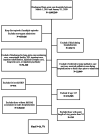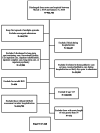Recent functional decline and outpatient follow-up after hospital discharge: a cohort study
- PMID: 37697250
- PMCID: PMC10496187
- DOI: 10.1186/s12877-023-04192-7
Recent functional decline and outpatient follow-up after hospital discharge: a cohort study
Abstract
Background: Functional decline is common following acute hospitalization and is associated with hospital readmission, institutionalization, and mortality. People with functional decline may have difficulty accessing post-discharge medical care, even though early physician follow-up has the potential to prevent poor outcomes and is integral to high-quality transitional care. We sought to determine whether recent functional decline was associated with lower rates of post-discharge physician follow-up, and whether this association changed during the COVID-19 pandemic, given that both functional decline and COVID-19 may affect access to post-discharge care.
Method: We conducted a retrospective cohort study using health administrative data from Ontario, Canada. We included patients over 65 who were discharged from an acute care facility during March 1st, 2019 - January 31st, 2020 (pre-COVID-19 period), and March 1st, 2020 - January 31st, 2021 (COVID-19 period), and who were assessed for home care while in hospital. Patients with and without functional decline were compared. Our primary outcome was any physician follow-up visit within 7 days of discharge. We used propensity score weighting to compare outcomes between those with and without functional decline.
Results: Our study included 21,771 (pre-COVID) and 17,248 (COVID) hospitalized patients, of whom 15,637 (71.8%) and 12,965 (75.2%) had recent functional decline. Pre-COVID, there was no difference in physician follow-up within 7 days of discharge (Functional decline 45.0% vs. No functional decline 44.0%; RR = 1.02, 95% CI 0.98-1.06). These results did not change in the COVID-19 period (Functional decline 51.1% vs. No functional decline 49.4%; RR = 1.03, 95% CI 0.99-1.08, Z-test for interaction p = 0.72). In the COVID-19 cohort, functional decline was associated with having a 7-day physician virtual visit (RR 1.15; 95% CI 1.08-1.24) and a 7-day physician home visit (RR 1.64; 95% CI 1.10-2.43).
Conclusions: Functional decline was not associated with reduced 7-day post-discharge physician follow-up in either the pre-COVID-19 or COVID-19 periods. In the COVID-19 period, functional decline was positively associated with 7-day virtual and home-visit follow-up.
Keywords: Functional decline; Health services; Homecare; Hospital discharge; Physician follow-up; Readmissions.
© 2023. BioMed Central Ltd., part of Springer Nature.
Conflict of interest statement
Lauren Lapointe-Shaw is supported by the University of Toronto Department of Medicine, the Toronto General Hospital Research Institute, the Women’s College Institute for Health System Solutions and Virtual Care (WIHV), and the Peter Gilgan Centre for Women’s Cancers at Women’s College Hospital, in partnership with the Canadian Cancer Society. The other authors report no relevant disclosures.
Figures
References
-
- Arnau A, Espaulella J, Serrarols M, Canudas J, Formiga F, Ferrer M. Risk factors for functional decline in a population aged 75 years and older without total dependence: a one-year follow-up. Archives of Gerontology & Geriatrics. 2016;65:239–47. - PubMed
-
- Boyd CM, Xue QL, Guralnik JM, Fried LP. Hospitalization and development of dependence in activities of daily living in a cohort of disabled older women: the women’s Health and Aging Study I. J Gerontol A Biol Sci Med Sci. 2005;60(7):888–93. - PubMed
-
- Chang HH, Tsai SL, Chen CY, Liu WJ. Outcomes of hospitalized elderly patients with geriatric syndrome: report of a community hospital reform plan in Taiwan. Arch Gerontol Geriatr. 2010;50(Suppl 1):30–3. - PubMed
Publication types
MeSH terms
Grants and funding
LinkOut - more resources
Full Text Sources
Medical



